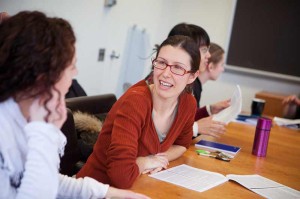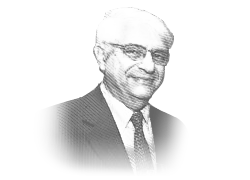A top-10 graduate training program for over a decade
Economic sociology at Cornell has ranked as a top-10 graduate training program for over two decades. The U.S. News and World Report (2021) ranks Cornell’s graduate program in economic sociology top-6 among those of Berkeley, Harvard, Princeton, Stanford, and University of Michigan Ann Arbor.

The Department of Sociology at Cornell University offers graduate courses in economic sociology, the economic sociology of entrepreneurship, social network analysis, the new institutionalism, culture in economic sociology, and advanced graduate seminars. CSES plays an essential role in attracting and training the best of the next generation of scholars in a number of subfields related to the study of economy and society. At the Center, graduate students are welcomed into a collaborative group of economic sociologists and given ample opportunity to work with faculty members on sponsored research projects.
Laboratories
The Economic Sociology Lab, directed by Victor Nee, seeks to provide training in theory construction linked to empirical research. The Lab’s research projects employs an advanced mixed methods approach in the study of economic action. Its strategic research sites include New York City’s regional knowledge economy, where the Lab has conducted survey research of a large sample of tech entrepreneurs, in depth face-to-face interviews and big data. The Economic Sociology Lab offers mini-grants to lab members for collaborative research in economic sociology and organizations. The mini-grants are given directly to lab members and can be applied for again in subsequent years—the application is based on a peer review process. The Lab also provides opportunity to serve as graduate research assistant on on-going research projects. Advanced undergraduate and graduate students can take the Economic Sociology Lab for course credit.
Working Groups
Graduate students play an active role in the daily life of the CSES. For example, each working group has a graduate student intern who works closely with the group’s faculty coordinator(s). They are strongly encouraged to present papers at the working group meetings and to contribute articles.
Job Market
Historically, graduate students that have been trained in economy and society at Cornell University have done well on the job market. For example, the following is a list of former Ph.D. students at Cornell University who were trained in economic sociology, organizations, and network analysis:
Lisha Liu (2021)
- Assistant Professor of Organization
- Antai School of Business, Jiaotung University, Shanghai
Mario Molina (2019)
- Postdoctoral Associate
- New York University Abu Dhabi
Michael Siemon (2018)
- Senior Data Scientist
- Ericsson, Santa Clara, California
Lucas Drouhot (2018)
- Assistant Professor of Sociology
- University of Utrecht, the Netherlands
Scott Golder (2017)
- Senior Director, Data Science
- Capital One
Yujin Oh (2017)
- Assistant Director, The Learning Strategies Center
- College of Arts and Sciences, Cornell University
Hilary Holbrow (2017)
- Assistant Professor of Sociology of Japan
- Indiana University, Bloomington, IN
Daniel DellaPosta (2017)
- Assistant Professor of Sociology
- Penn State University
Christopher B. Yenkey (2011)
- Assistant Professor
- University of South Carolina, Business School
Li (Mary) Ma (2010)
- Assistant Professor of Sociology
- Tongji University, Shanghai
Yujun Wang (2010)
- Associate Professor of Sociology
- Renmin University, Beijing
Mark Dodd Jacobs (2009)
- Assistant Professor
- Business School, Renmin University, Beijing
Douglas Savitsky (2009)
- Lecturer
- Department of Economics, University of Connecticut
John Calvin Scott (2008)
- Director
- Pew Charitable Trusts, Severna Park, MD
Ed Carberry (2008)
- Associate Professor of Management
- Management Department, University of Massachusetts Boston
Ko Kuwabara (2007)
- Associate Professor of Organisational Behavior
- INSEAD, Singapore
Min-Dong Paul Lee (2007)
- Norris A. Aldeen Professor of Business
- Wheaton College
Arnout van de Rijt (2007)
- Professor of Sociology
- Department of Sociology, European University Institute
Damon Centola (2006)
- Elihu Katz Professor of Communication, Sociology, and Engineering
- Annenberg School for Communication, University of Pennsylvania
Zhilin Liu (2006)
- Associate Professor
- School of Public Policy and Management, Tsinghua University
Erik Volz (2006)
- Senior Lecturer
- School of Public Health, Imperial College London
Wubiao Zhou (2006)
- Senior Lecturer
- Department of Management, University of Birmingham
Joy Pixley (2002)
- Assistant Professor
- Department of Sociology, University of California at Irvine
Brent Simpson (2001)
- Professor of Sociology
- Department of Sociology, University of South Carolina
James Kitts (2001)
- Professor of Sociology
- Department of Sociology, University of Massachusetts Amherst
Pawan Dhingra (2001)
- Professor of American Studies; Associate Provost and Associate Dean of the Faculty
- Amherst College
Yang Cao (1999)
- Associate Professor
- Department of Sociology, UNC – Charlotte
Rebecca Matthews (1998)
- Statistician
- U.S. Census Bureau
Duncan Watts (1997)
- Stevens University Professor
- Annenberg School for Communications, University of Pennsylvania
Lisa Keister (1997)
- Professor and Associate Director of the Rhodes Information Initiative
- Department of Sociology, Duke University
Sarah Soule (1995)
- Morgridge Professor of Organizational Behavior; Senior Associate Dean for Academic Affairs
- Stanford Business School, Stanford University
Raymond Liedka (1958-2016), (1995)
- Professor of Sociology
- Department of Sociology and Anthropology, Oakland University
Paul Ingram (1994)
- Kravis Professor of Business
- Graduate School of Business, Columbia University

